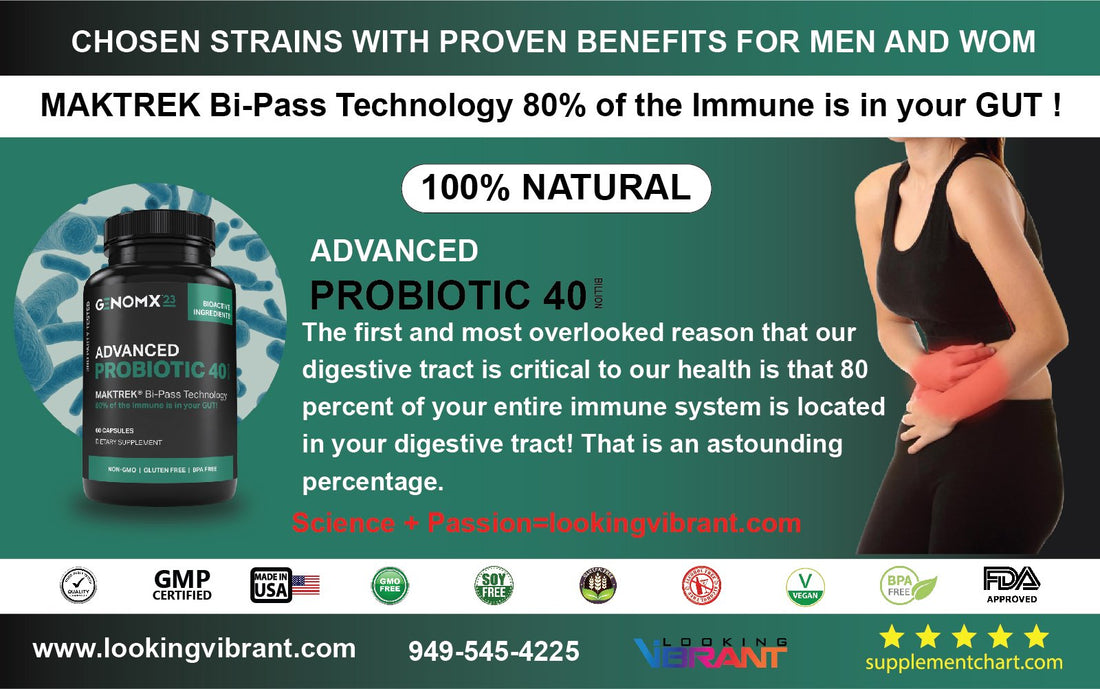Another Study Shows Probiotics Impact Intestinal Microbiota in Colon Cancer Patients.
"Without a healthy gut, no other intervention can work correctly" Dr. William Li
Lookingvibrant PROBIOTIC 40 (BILLION) MAKTREK BI-PASS PATENTED TECHNOLOGY (NON GMO-GLUTEN FREE-BPA-CHINA FREE)
HIGHLIGHTS
-
It contains FOS to help with the healthy growth of acidophilus and Bifidus organisms.
-
High potency and balance of beneficial bacteria.
-
Help assist in maintaining healthy intestinal flora.
lv


